Search
Search Results
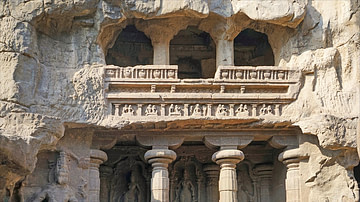
Image
Shrine of the Kailasa Temple, Ellora
A Hindu shrine from the rock-cut Kailasa temple at Ellora, 8-9th century CE. The central figure is Ganga, the personification of the river Ganges. Ellora, a UNESCO World Heritage Site, is a meeting place of Hindu, Buddhist and Jain art philosophies...
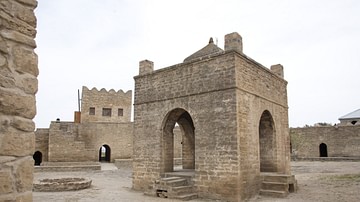
Image
Ateshgah Fire Temple
Ateshgah Fire Temple, Azerbaijan.
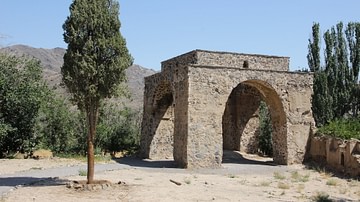
Image
Natanz Fire Temple
Sassanian Fire Temple, Natanz, Iran.
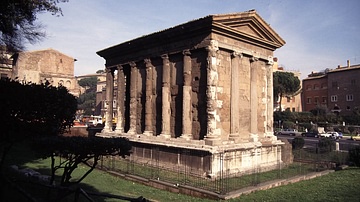
Image
Rear, Temple of Portunus
The 2nd century BCE Temple of Portunus, Rome. The façades carry two engaged Inoic columns.
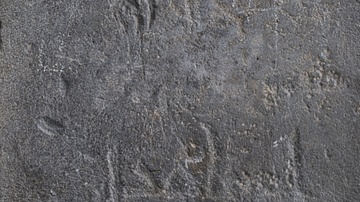
Image
Arabic Graffiti at the Temple of Garni
The Arabs invaded and conquered Persian and Byzantine Armenia in 630s and 640s CE, respectively. At Garni Temple, there is Arabic graffiti along the walls, which is dated to the 9th-10th centuries CE.
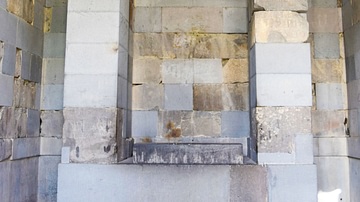
Image
Cella of Garni Temple in Armenia
The cella of Armenia's Garni Temple is about 7 m (23 ft) high, 8 m (26 ft) long, and 5 m (17 ft) wide. As it can only hold about 20-25 people inside, many historians and archaeologists believe it originally held a statue, perhaps of the sun...

Video
Let's Explore the King's House in the Forum: the REGIA - Ancient Rome Live
The Regia was an old (7th Century BCE) structure that may have first been the king's house in the regal period. By the time of the Augustus, it took on its definitive appearance, faced with Carrara marble. The structure had a number of...
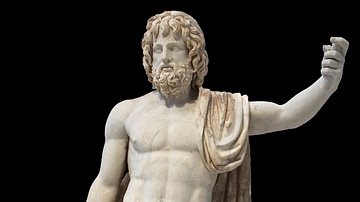
Image Gallery
Visual Guide to Ancient Roman Gods & Heroes
This gallery is a visual guide to Roman mythology. It includes some of the more influential or popular deities, heroes and spirits from Roman mythology, and their identifying features. Roman mythology was a collection of legends and traditions...
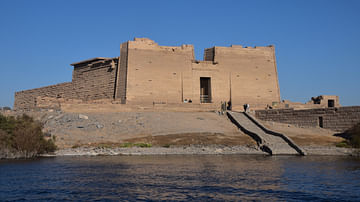
Image
Temple of Mandulis, New Kalabsha
The Temple of Mandulis (also known as the Temple of Kalabsha) is a Roman Period Egyptian temple built as a tribute to Mandulis, a sun god of ancient Nubia. It was constructed by Emperor Augustus around 30 BCE, presumably on the site of an...
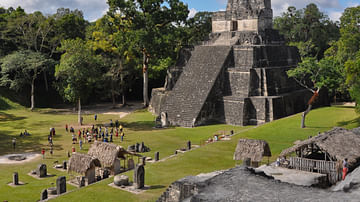
Image
Temple II, Tikal
Temple II, Tikal, Guatemala. The temple was used as a tomb, probably for the queen of Maya ruler Jasaw Chan K'awiil (r. 682-734 CE), although, no remains have been discovered. The temple is 42 metres high and faces the larger temple-pyramid...